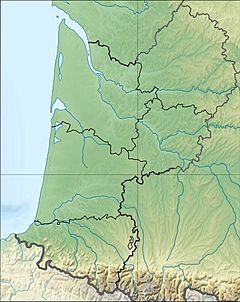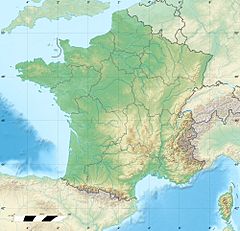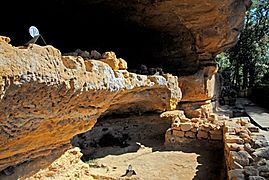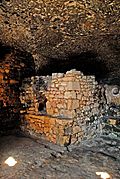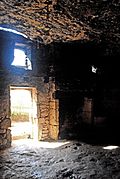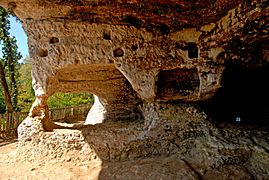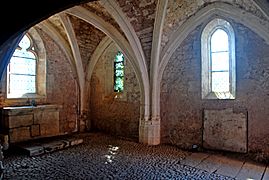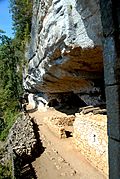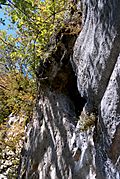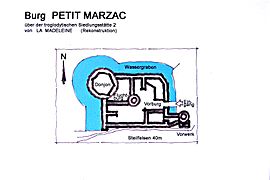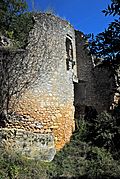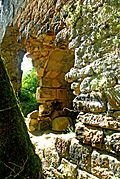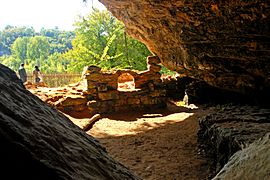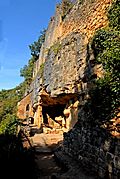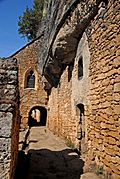Abri de la Madeleine facts for kids
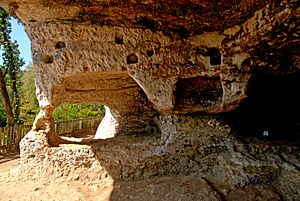
La Madeleine rock shelter
|
|
| Alternative name | Magdalene rock shelter |
|---|---|
| Location | Near Tursac, Dordogne département |
| Region | Aquitaine région, southwestern France |
| Coordinates | 44°58′05″N 1°01′44″E / 44.96806°N 1.02889°E |
| History | |
| Periods | Upper Palaeolithic, |
| Cultures | Magdalenian |
| Associated with | European early modern humans |
| Site notes | |
| Excavation dates | 1875 |
| Archaeologists | Édouard Lartet, Henry Christy |
The Abri de la Madeleine (which means Magdalene Shelter) is an amazing archaeological site. It is a rock shelter located under a huge overhanging cliff. You can find it near Tursac, in the Dordogne area of southwestern France.
This site is super important because it's the main place where the Magdalenian culture was first identified. This culture existed during the Upper Paleolithic period, which was a very long time ago! People also lived in this shelter during the Middle Ages. Right above the shelter, on top of the cliff, stands the old castle of Petit Marsac.
Digging Up the Past
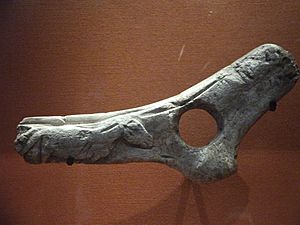
The first people to really dig and study the Abri de la Madeleine were Édouard Lartet and Henry Christy. They started their work in 1863. They published what they found in 1875, calling it the "Age of the Reindeer."
Many cool objects were found at the La Madeleine site. These items are now kept in different museums around the world. Some are in the Muséum de Toulouse and the Musee des Antiquites Nationales in France. Others are in the British Museum in London.
One of the most famous finds is the Bison Licking Insect Bite. This is a carving that is about 20,000 years old! It shows incredible artistic skill from ancient times. Another important discovery was a perforated baton with a horse carved on it.
Keeping It Safe
The Abri de la Madeleine is a very special place. Because of its importance, it was named a Monument historique (historic monument) in France in 1956.
Even more, in 1979, the Abri de la Madeleine became a UNESCO World Heritage List site. It's part of the Prehistoric Sites and Decorated Caves of the Vézère Valley. This means it's recognized globally for its unique ancient artwork and its archaeological value.
Gallery
 | Chris Smalls |
 | Fred Hampton |
 | Ralph Abernathy |


